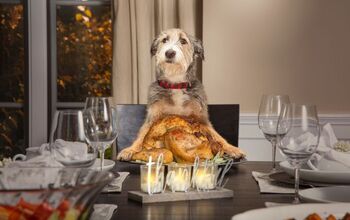Can My Dog Get Jealous?

You’re giving attention to a new puppy, petting the neighbor’s dog, or maybe even cuddling a baby - and suddenly, your own dog pushes in, whines, or wedges themselves between you and the “intruder.” It definitely feels like jealousy.
But is it? Can dogs actually get jealous? The short answer: Yes - sort of.
While dogs don’t experience jealousy in quite the same way humans do, they can show possessive, competitive, or attention-seeking behaviors that look a lot like it. Let’s break it down.
What Jealousy Looks Like in Dogs
Jealousy in dogs often shows up in subtle (and sometimes not-so-subtle) ways. You might notice your dog:
- Pushing between you and another person or pet
- Whining or barking when you give someone else attention
- Pawing at you or demanding cuddles
- Guarding toys, food, or even people
- Acting out with sudden behaviors like peeing indoors or ignoring commands
These aren’t just “bad manners” - they’re signals that your dog is feeling insecure, left out, or uncertain about their place in the social circle.
Why Dogs Act Jealous
At the heart of it, jealousy-like behavior in dogs is often rooted in:
- Attention shifts - especially if they were once your one-and-only
- Changes in routine - a new baby, pet, partner, or roommate
- Resource guarding - not just food, but people too
- A need for reassurance - dogs are incredibly social animals who crave connection
They’re not being dramatic - they’re responding to what feels like a threat to their bond with you.
What the Science Says
Research backs up what dog owners have long suspected. A 2014 study published in PLOS ONE found that dogs exhibited jealous behaviors - like pushing or interrupting - when their owners showed affection to what appeared to be another dog (in reality, a stuffed dog). The behaviors mirrored how young children react to divided attention.
While dogs may not experience jealousy in the full, emotional complexity humans do, it’s clear they can feel possessive, left out, or protective of their relationships.
How to Help a “Jealous” Dog
The good news is, jealous behavior can be managed - and even prevented - with the right approach. Here’s how:
1. Acknowledge Their Feelings (Without Reinforcing Them)
It’s okay to comfort your dog, but try not to reward pushy behavior with attention every time. Instead, calmly redirect and reward calm, patient behavior.
2. Give One-on-One Time
Make sure your dog still gets regular undivided attention - walks, play, snuggles - especially if there’s a new pet or baby in the house.
3. Train for Calm Behavior Around Others
Use treats and praise to reward your dog for staying calm when you’re interacting with someone else. This helps teach them that sharing your attention doesn’t mean losing your love.
4. Avoid Comparisons
Just like people, dogs have different personalities. Some are naturally more clingy or sensitive. Instead of comparing, focus on helping your dog feel secure in your bond.
5. Be Consistent
Dogs feel more secure when the rules and routines stay steady. Consistency helps reduce anxiety - and that includes how and when affection is shared.
Final Thoughts: Jealous? Maybe. Insecure? Definitely.
So, can your dog get jealous? Yes - in their own way. They may not stew over slights the way humans do, but they do feel it when attention shifts, when routines change, or when their place in your heart feels uncertain.
The best remedy? Reassurance, routine, and respect. With a little patience and understanding, your dog will learn there’s always enough love to go around.

A proud mama to seven dogs and ten cats, Angela spends her days writing for her fellow pet parents and pampering her furballs, all of whom are rescues. When she's not gushing over her adorable cats or playing with her dogs, she can be found curled up with a good fantasy book.
More by Angela Vuckovic
























